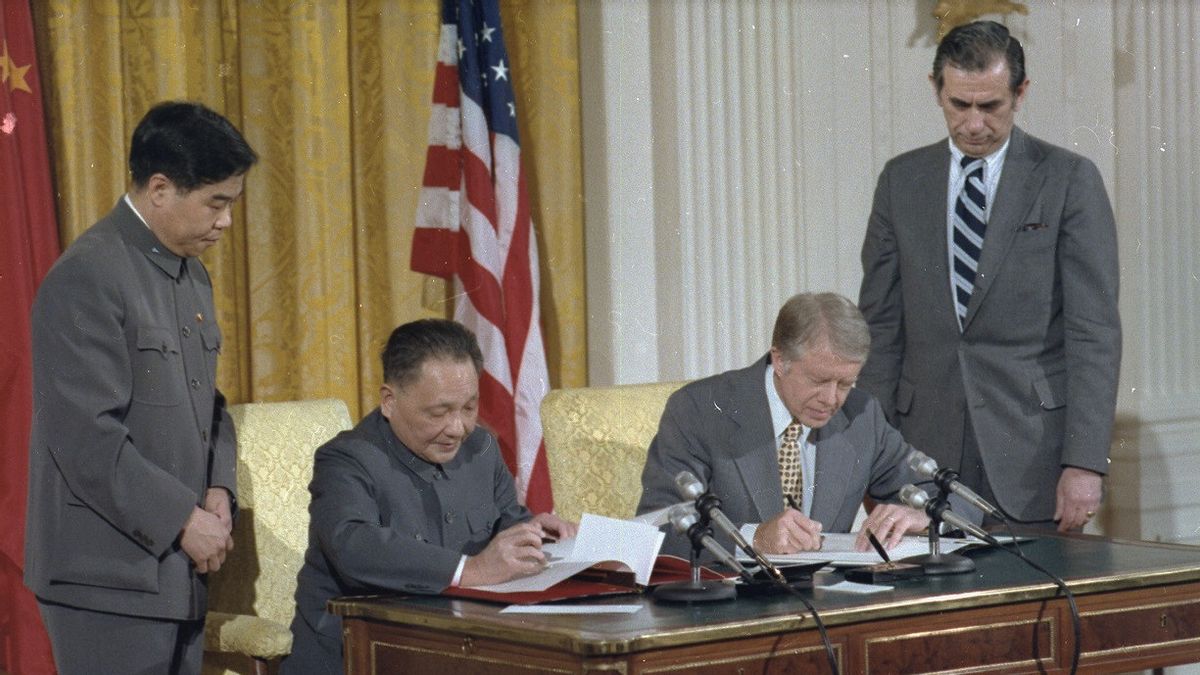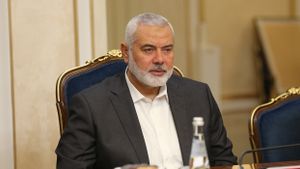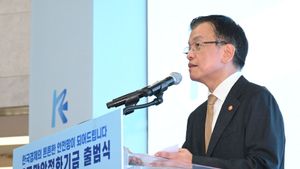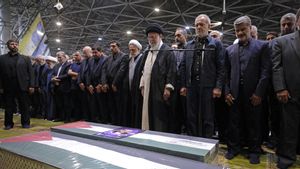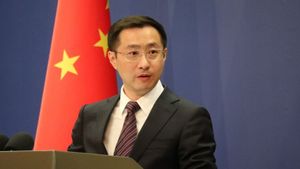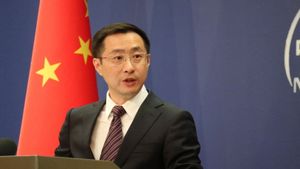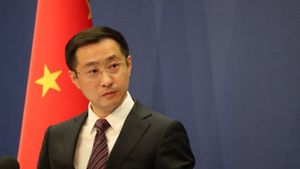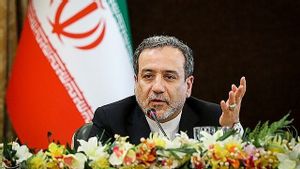JAKARTA - Beijing on Monday expressed its condolences for the death of former President Jimmy Carter, a figure who is considered to be behind China-United States diplomatic relations more than 40 years ago.
Carter died at her home in Plains, Georgia, at the age of 100 on Sunday.
After winning the competition within the Democratic Party, Carter advanced to the United States general election in 1976. He became the 39th president after beating the incumbent Gerald Ford of the Republican Party.
One of the diplomatic boosts during his 1977-1981 administration was the establishment of Beijing's official relations with Washington which was built on the basis of former President Richard Nixon and Foreign Minister Henry Kissinger in the early 1970s.
"Chinese Chief Condolences for the death of former United States President Jimmy Carter," Chinese Foreign Ministry spokesman Mao Ning said.
"Former President Carter is the driving force behind the establishment of diplomatic relations between China and the United States, and makes an important contribution to the development of China-United States relations as well as the exchange and friendly cooperation between the two countries," Mao explained at a regular press conference.
Carter's decision to recognize Beijing's position in 1979, there is only one China and Taiwan are part of China, cutting formal ties with Taiwan, helping to map new directions in the relationship.
"His historic contribution to the normalization and development of Chinese-US relations will always be remembered by the Chinese people," wrote Chinese Ambassador to the United States Xie Feng in an upload on X.
That same year, 1979, the US Government, while complying with the One China policy, also passed the Taiwan Relations Act, which established a legal basis for providing the island with the means to defend itself.
Beijing claims Taiwan as part of its territory and has never dismissed the use of force to bring the island back under its control.
The sale of US weapons to Taiwan permitted by the Taiwan Relations Act remains a friction point in China-US relations to this day, with Beijing regularly urging Washington to comply with Chinese One principles, and impose sanctions on US company military and executive suppliers.
VOIR éGALEMENT:
Other pacts signed during Carter's tenure included the US-Chingkok Science and Technology Treaty (STA) in 1979, a science cooperation deal that some critics say has disproportionately benefited Washington's main geopolitical rivals for decades.
The pact was updated this month, weeks before the inauguration of President-elect Donald Trump on January 20, 2025.
The State Department said the new deal was significantly narrower than previous iterations, and did not include critical or developing technologies.
The English, Chinese, Japanese, Arabic, and French versions are automatically generated by the AI. So there may still be inaccuracies in translating, please always see Indonesian as our main language. (system supported by DigitalSiber.id)
